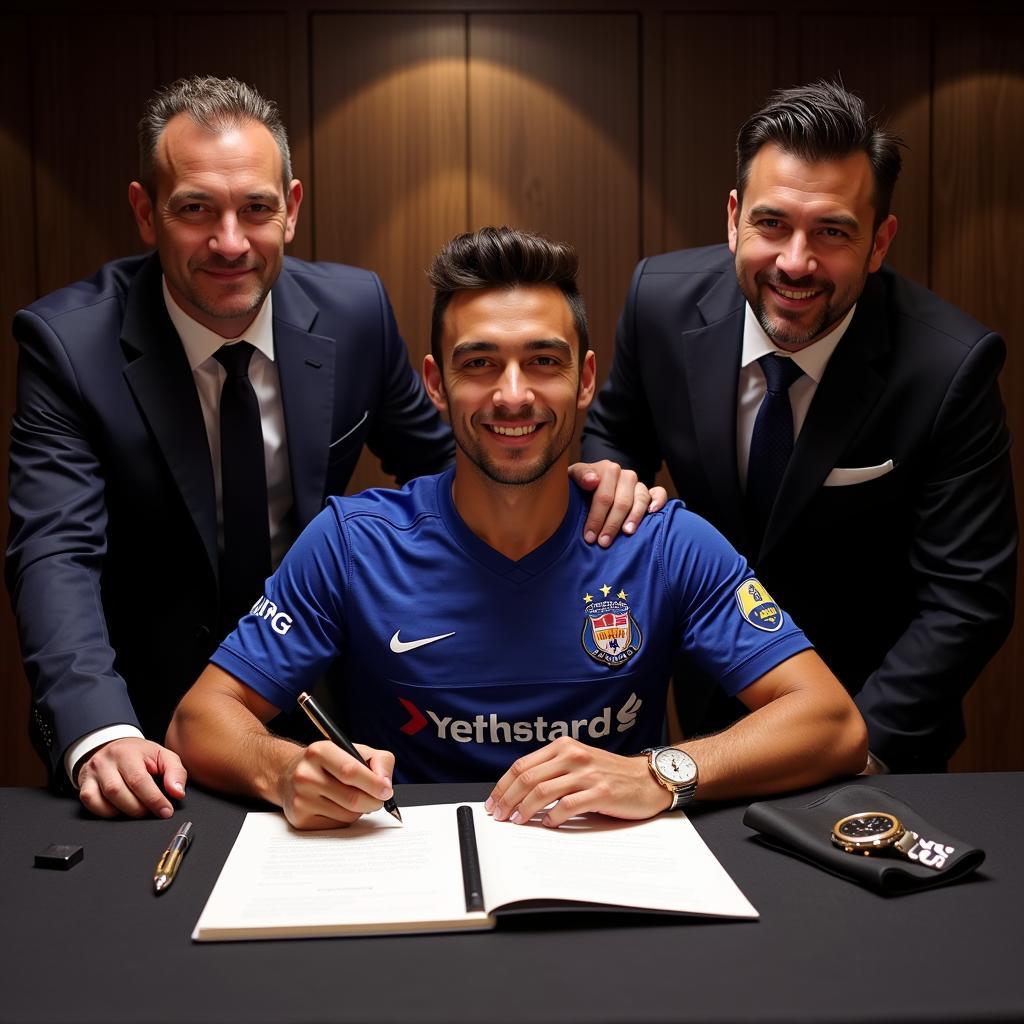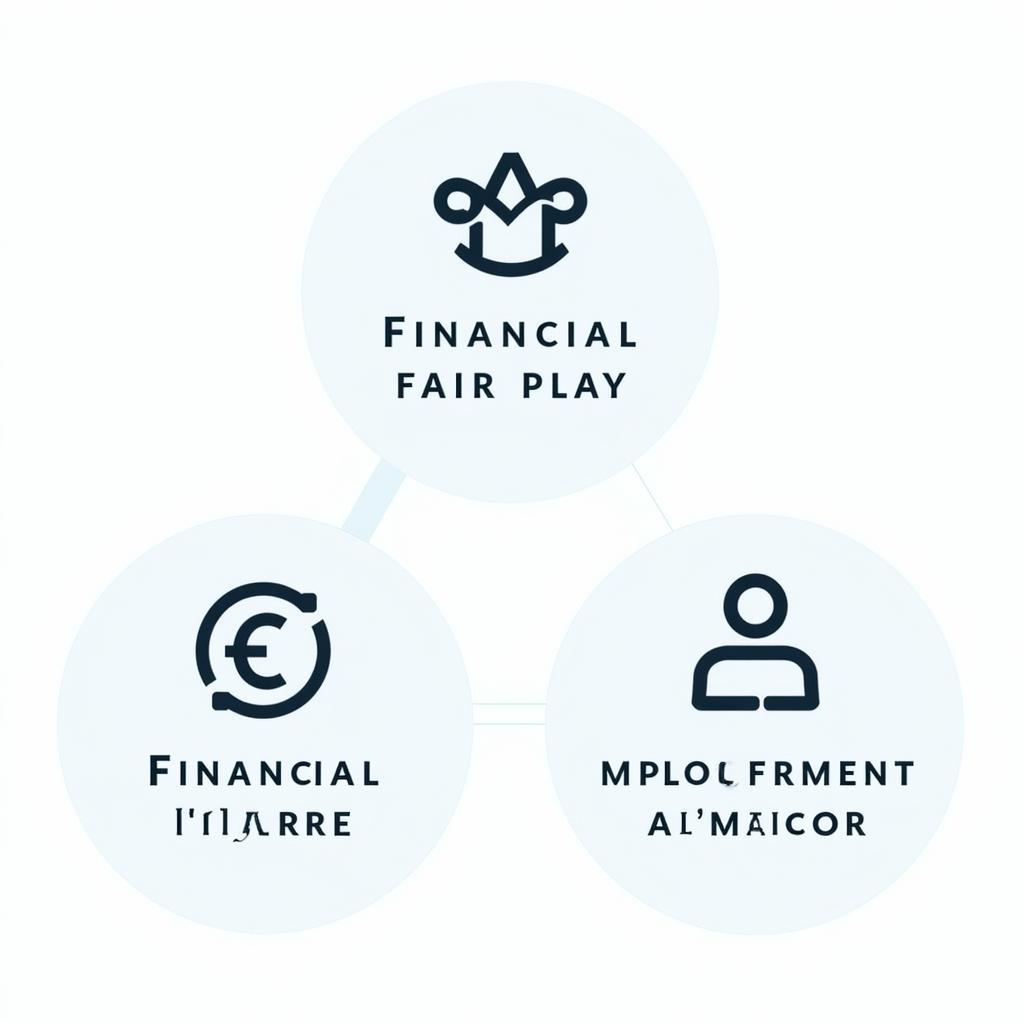Who Gets the Football Transfer Fee?
December 12, 2024The world of football transfers involves huge sums of money, but have you ever wondered who actually gets the football transfer fee? This article delves into the intricacies of transfer fees, exploring where the money goes and who benefits from these multi-million dollar deals.
Decoding the Destination of Football Transfer Fees
Transfer fees, the lifeblood of the football market, represent a complex financial ecosystem. Understanding where this money goes is crucial for fans, players, and anyone interested in the business of football. It’s not as simple as one club paying another; several parties often have a stake in the final amount.
Key Beneficiaries of Transfer Fees: Clubs, Players, and Agents
The Selling Club: The Primary Recipient
The selling club receives the bulk of the transfer fee. This money is vital for club operations, including:
- Investing in new players: Clubs often reinvest transfer profits to strengthen their squad.
- Improving infrastructure: Stadium upgrades, training facilities, and youth academies benefit from these funds.
- Paying off debts and operational costs: Transfer fees can help stabilize a club’s financial health.
The Player: Loyalty Bonuses and Future Earnings
While the player doesn’t directly receive the transfer fee itself, they can benefit in several ways:
- Signing bonus: A lump sum payment upon joining the new club.
- Increased wages: Transfers often lead to significantly higher salaries.
- Agent fees: While the player covers these, it’s part of the overall financial package.
 Player Benefits from Transfer
Player Benefits from Transfer
The Agent: Brokering the Deal
Agents act as intermediaries, negotiating the best possible deal for their clients. They receive a percentage of the player’s contract value, including the signing bonus, not the transfer fee itself. This percentage is typically between 3-5%.
Sell-On Clauses: Future Revenue for the Selling Club
Sell-on clauses, inserted into transfer agreements, entitle the selling club to a percentage of any future transfer fee if the player is sold again. This provides a long-term financial benefit, especially for developing young talent.
Where Does the Transfer Fee Not Go? Directly to the Player
It’s a common misconception that the player receives the transfer fee. The fee is paid to the selling club as compensation for releasing the player from their contract.
Football Transfer Regulations: Ensuring Transparency and Fair Play
Governing bodies like FIFA and UEFA have regulations in place to monitor transfers, prevent financial irregularities, and ensure fair competition. These regulations cover aspects like third-party ownership and financial fair play.
 FIFA Transfer Regulations
FIFA Transfer Regulations
Conclusion: Understanding the Complexities of Football Transfer Fees
Understanding where the football transfer fee goes is vital for grasping the financial dynamics of the beautiful game. While the selling club receives the majority, the player, agent, and even previous clubs can benefit. This intricate system fuels the player market, driving competition and shaping the future of football. Knowing the flow of funds offers valuable insights into the business behind the sport.
FAQ
- Does the player receive the transfer fee directly? No, the fee goes to the selling club.
- How much does an agent typically earn from a transfer? Agents receive a percentage (usually 3-5%) of the player’s contract, not the transfer fee.
- What are sell-on clauses? These clauses give the selling club a percentage of any future transfer fee if the player is sold again.
- Why are transfer fees so high? Several factors contribute, including player performance, market demand, and contract lengths.
- Who regulates football transfers? Governing bodies like FIFA and UEFA oversee transfer activities.
- Can a player refuse a transfer? While clubs can agree on a fee, the player ultimately has the final say on whether to move.
- What is Financial Fair Play? Regulations designed to prevent clubs from spending beyond their means.
Related Articles
- Player Contract Negotiations
- The Role of Agents in Football
- Financial Fair Play Explained
For further assistance, please contact us at Phone Number: 0396443476, Email: [email protected] or visit our office at 23 Tháng 3, Đắk Nia, Gia Nghĩa, Đắk Nông, Việt Nam. We have a 24/7 customer service team.